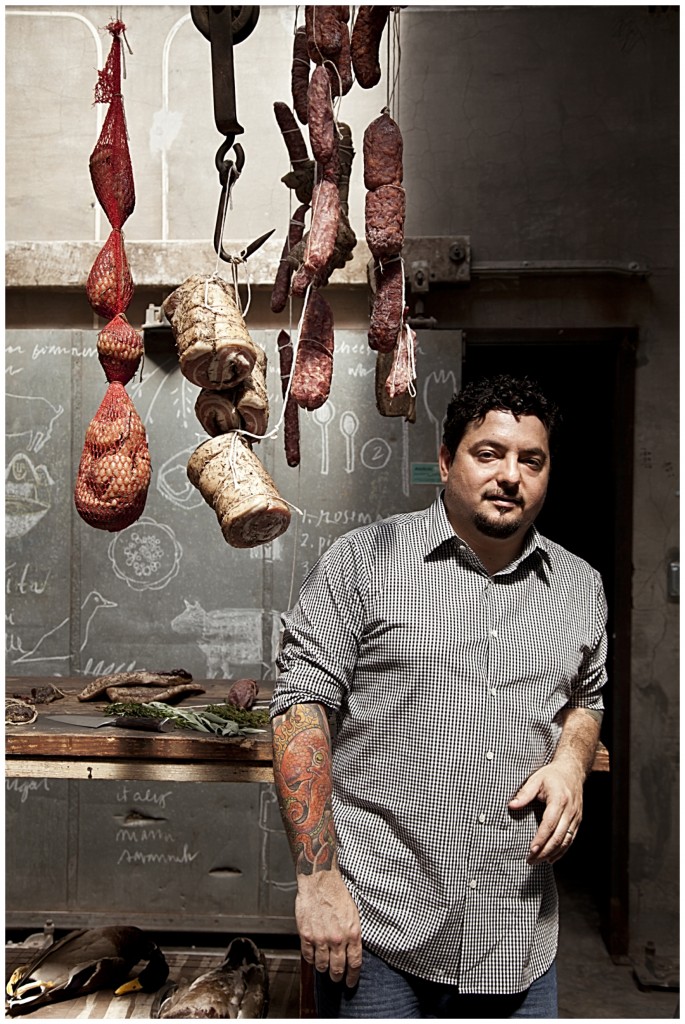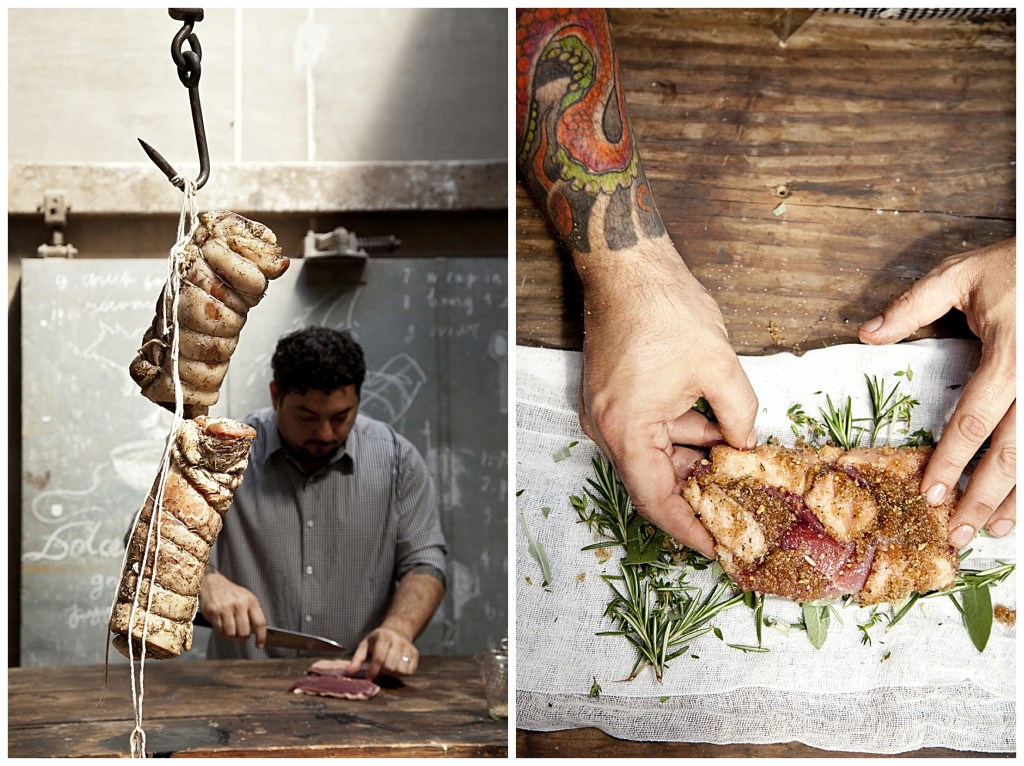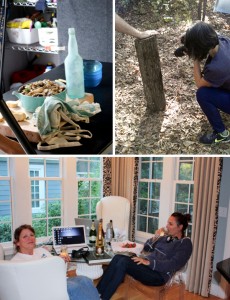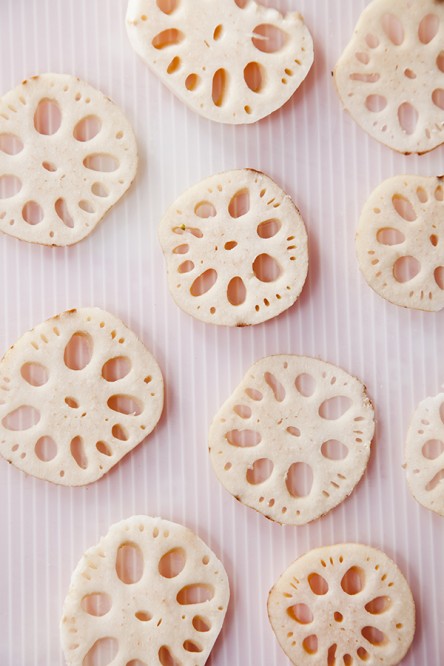Words by Andrea Goto
Photography by Chia Chong
Styled by Libbie Summers, Katherine Sandoz and Brooke Atwood
Shot on location at Meddin Studios
I’m sitting with artisan chef and restaurant owner Roberto Leoci in an old meat-packing building that is now Meddin Studios. It’s 80-degrees outside, but cold in here, as if the refrigeration has permanently seeped into the concrete floor. The place is creepy. Barn-size metal doors divide the rooms; to slide one open you have to press your entire body against it. The old wooden tables move as easily as live oaks and are just as creaky. Everything is heavy. Even the new glass doors are propped open by 25-pound sandbags.
I have no idea why Leoci, a first-generation Italian, look natural in the postmodern, industrial room where the walls throw our voices back at us. He sits in his chair, leaning onto the arm handle as if he’s going to get up any minute and leave me sitting here alone—maybe to sharpen a knife along the length of a leather strap, or butcher a giant side of beef that I imagine is hanging from eye-piercing hooks in the next room. I imagine I hear “Speak Softly Love” playing from somewhere above the florescent lights.
Instead, Leoci rolls up his sleeve to show me one of the many tattoos. He points to the image of a beautiful young woman with long flowing hair and a crown atop her head. It’s his wife.
“She has a Maserati crown on her head,” he laughs, tracing the trident-shaped object with his fingertip.
I think he’s joking—surely no one would put a Maserati symbol on his wife’s head. But if so, it’s a joke he’s not going to let me in on. That’s when I realize that while Leoci loves to tell stories, there are dozens more he prefers to keep to himself.
Before I can question him on the branding of his lovely wife, he directs me to his opposite arm where “La Dolce Vita” is written in script down the length of his forearm.
“That’s from when I was living the street life.” Again, he laughs.
“Street life?” Granted, he has an accent and I’m a little deaf, but clearly between being raised by in a large Italian community in Montreal by loving aunts and working in Miami’s five-star hotels, I missed something.
He repeats himself. This time I hear “sweet life.” He doesn’t offer any further explanation. And my instinct—albeit a non-writerly one—tells me not to peruse it.
There are some parts of Leoci’s sweet/street life that he shares willingly—charming stories tied to Italian food and family. Like how he grew up sneaking raw meatballs from his aunt’s kitchen and eating them like apples. And in the long, cold winters he’d steal the salami curing in the basements of his friends’ homes, perhaps washing it down with the wine the family had bottled in the fall.
He mentions losing his mother and father in his early twenties, as if it were a footnote to a larger story. But this time I won’t let him skip to the next chapter without further explanation.
“My dad was older, and my mom went into the hospital right after I was born,” he explains as if it’s any kind of explanation at all. “She was ill for a long time.”
“Cancer?”
“She was terminally ill” he says uncomfortably, and then adds: “It makes you tough.”
Like a heavy door. A solid table. A cement floor.

















